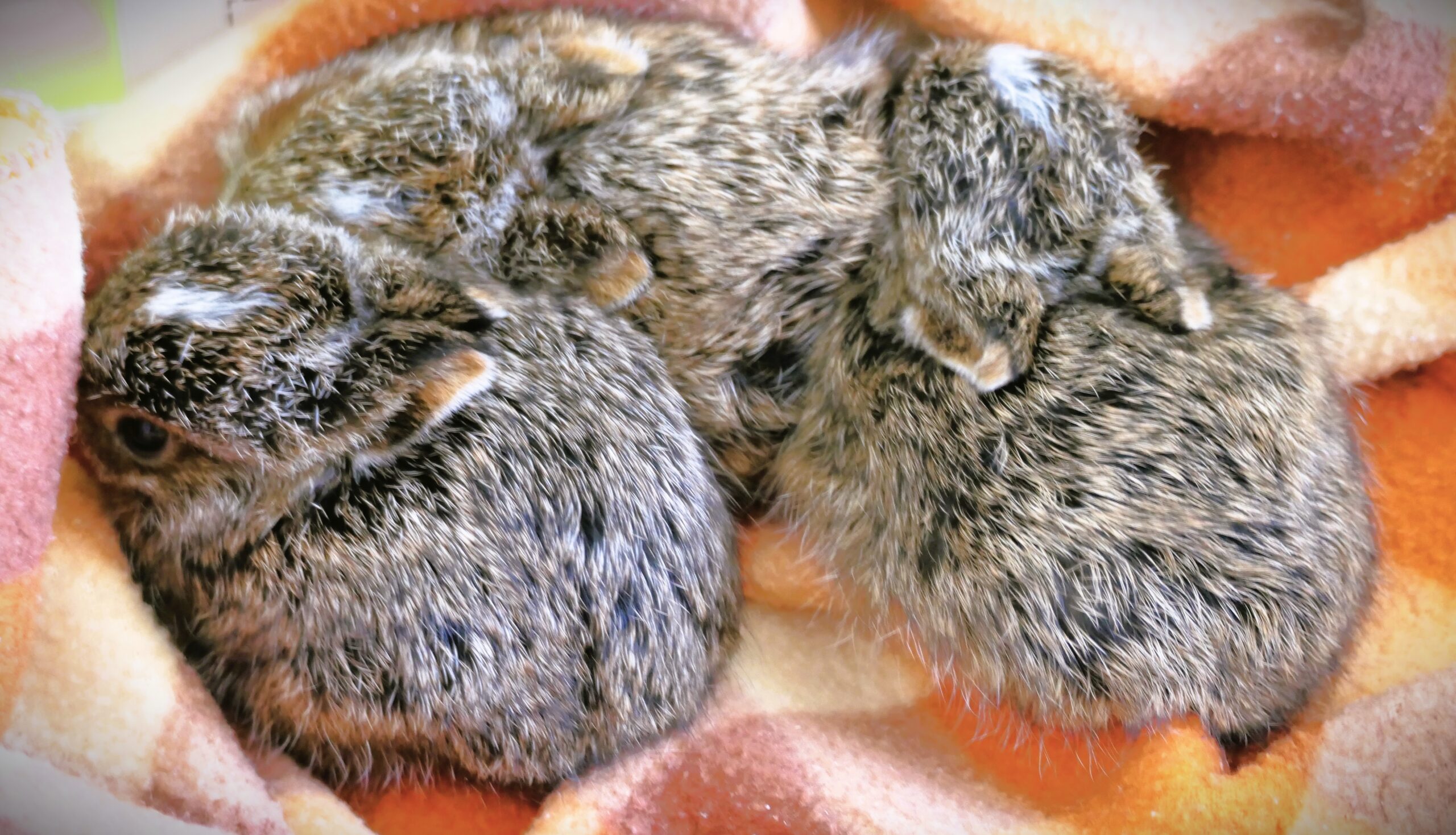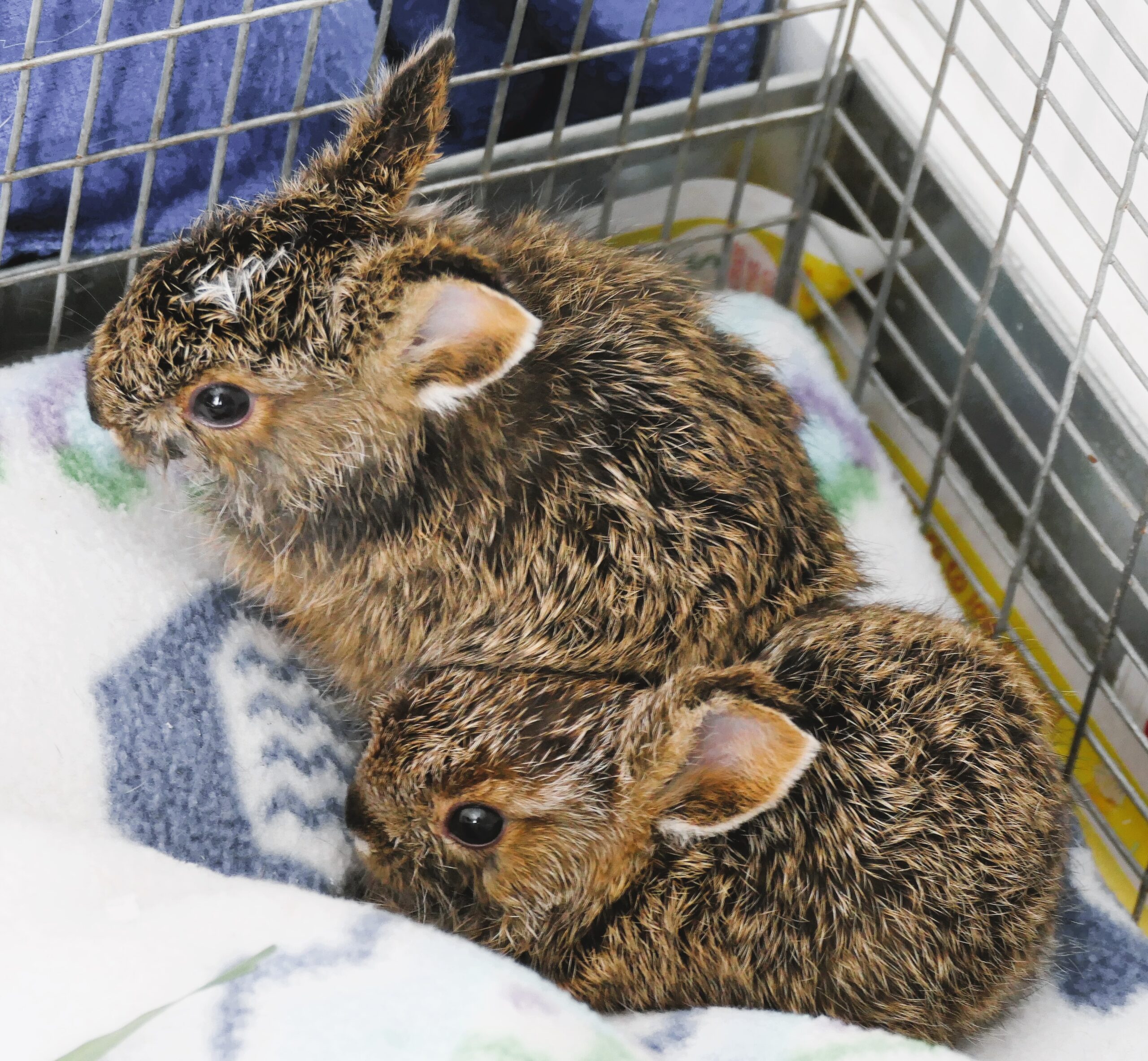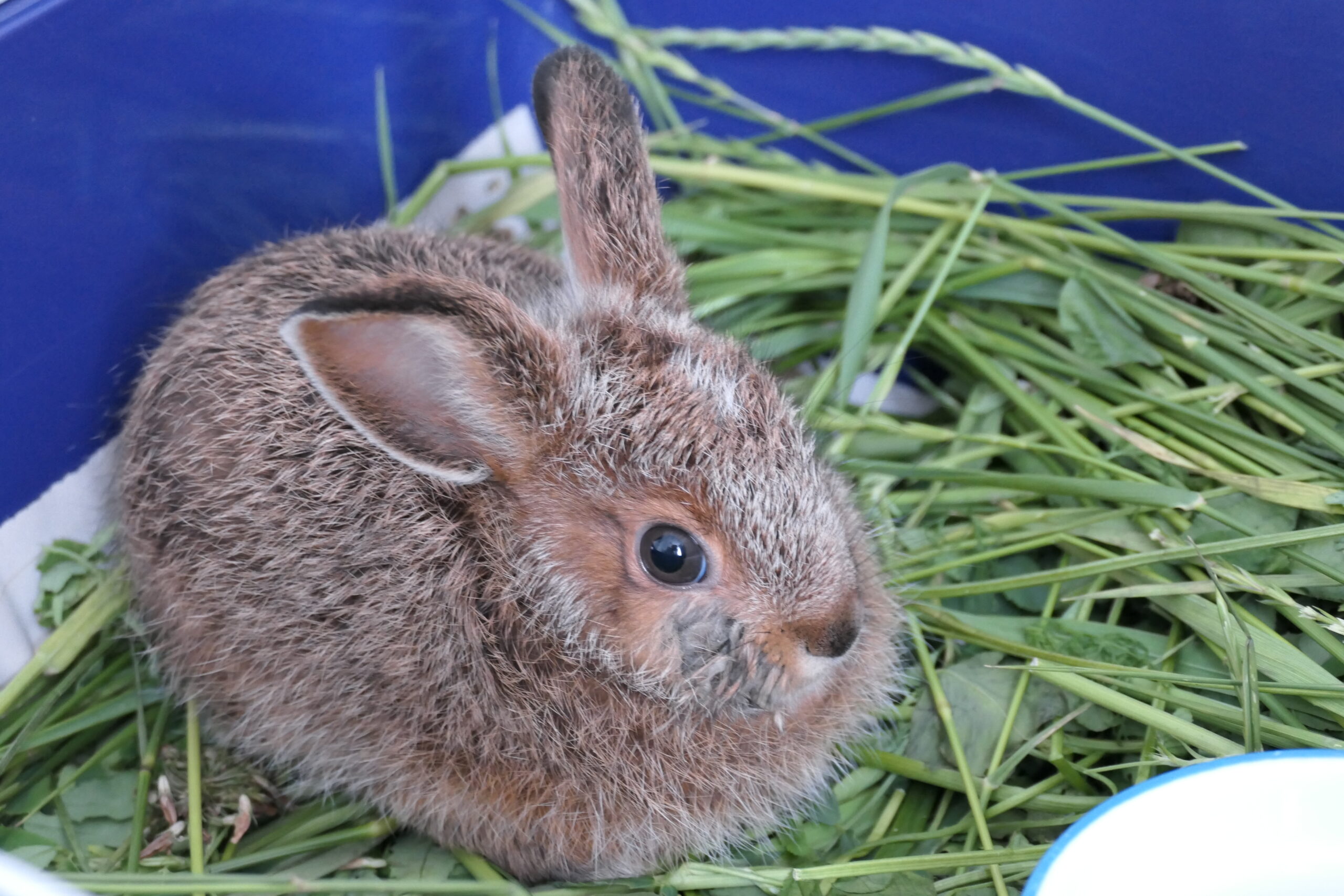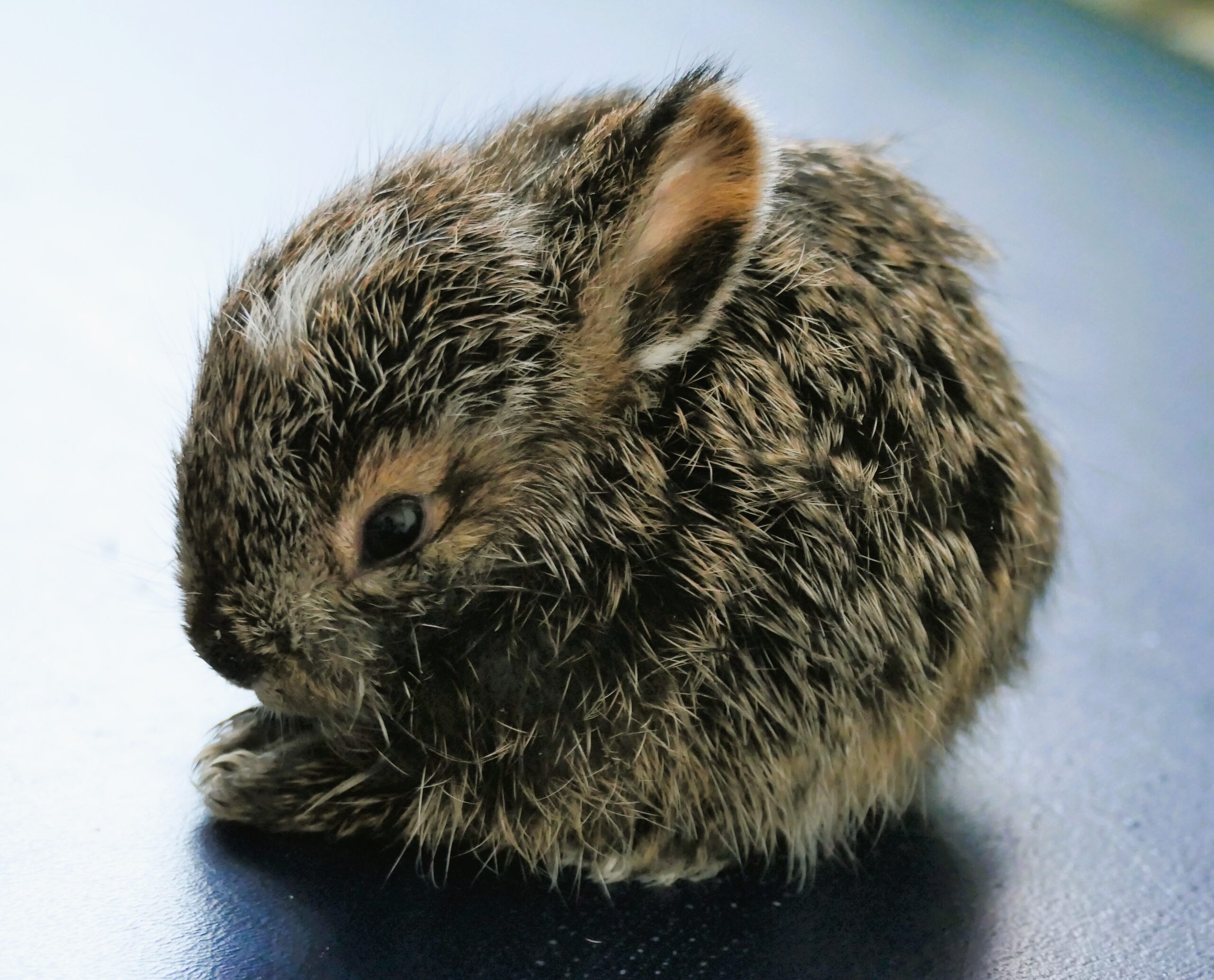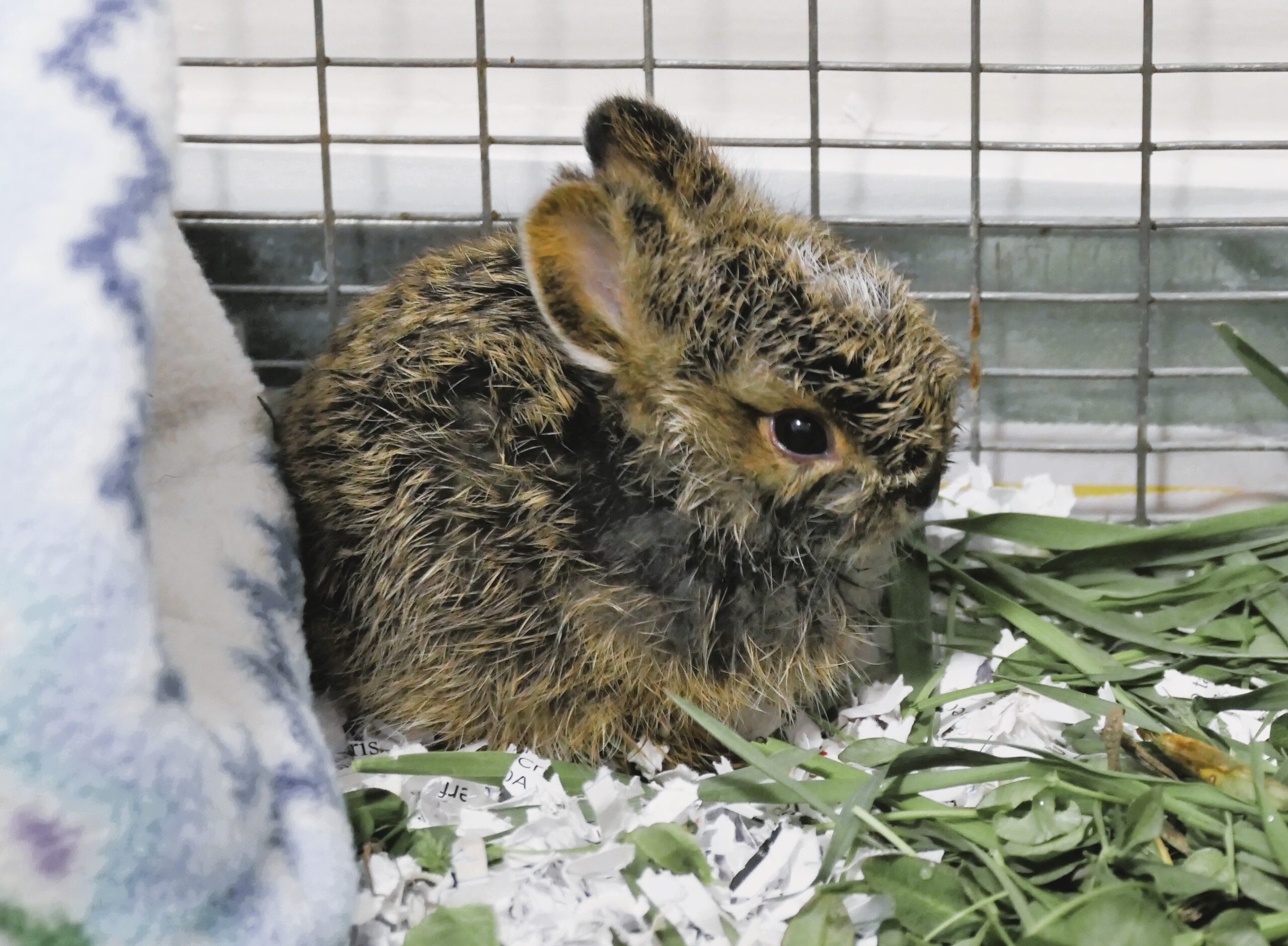Caring for Abandoned Baby Hares
Have you found very young hares (leverets) that appear to be in distress? Have you confirmed they have been orphaned or abandoned?
If so, now it is time for you to act by following the leveret care suggestions below …
IMPORTANT NOTE
Leverets (baby hares) are VERY difficult to raise in captivity. They have very delicate gastro intestinal (GI) tracts and will suffer a long, painful death if the balance in the GI tract is not maintained. Also, when they are found, these wild orphans aren’t typically healthy enough to be able to digest food properly. Feeding them at this stage can lead to fatal problems hours, days, even weeks later. Therefore, please do not give leverets anything to eat or drink for ANY reason.
Rather than trying to find the species-specific formula, grasses, additives, medications, feeding equipment, scales, housing, electrolytes, outdoor run, etc., that the leverets will need depending on their age, condition and health issues, it would be best for the animals if you spent this time looking for a rehabilitation facility (rehabber) which can accept them. If you have to leave a message, don’t wait long for a reply. Please phone another rehabber until you can find someone who will agree to admit your animals. You will serve these animals much better if you put all your efforts into finding a rehabber and subsequently dropping off the babies at the rehabilitation facility rather than trying to raise them yourself.
Unfortunately, there is a LOT of misinformation on the internet about what and how to feed leverets from what appear to be very knowledgeable sources. Please don’t be fooled into trying to look after them by getting advice from these ‘experts’. It is not fair on the animals to subject them to this kind of experimentation.
The best thing you can do for them is find a rehabber who consistently successfully raises and releases hares. And once you have found a rehabber, please inform all the other rehabbers you contacted that you have found someone who will admit your animals. Rehabbers spend a lot of time returning numerous calls and emails only to find out that their help is no longer needed. This time would be better spent looking after their other wild charges so a quick email or phone call from you to cancel your request for help would be very much appreciated. Thank you very much.
Initial Care Instructions
The leveret care instructions below will guide you through the brief interval between finding the abandoned animals, contacting us for drop-off arrangements and transporting them to our Rescue.
Preparation
- For the sake of the wildlife babies, wash your hands or put on latex/nitrile gloves before handling them. For your sake, wash your hands when you are finished.
- Until you can get him into a covered box or carrier, please keep the baby covered with your hands as leverets can very quickly leap out of your grasp if they are startled.
Bedding and Container
- Use ravel-free material for bedding such as tissues or a shirt (no buttons). If you use white material it is easy to see if the babies urinate or defecate. Moreover we can use these waste products as indicators of the babies’ health.
- Please make sure there are no loose threads or holes in whatever bedding material you choose. Please do not use towels as bedding because most towels are made from materials that get caught in the leverets’ claws and limbs.
- Place the leverets in a pet carrier or covered box with ventilation. Please ensure the leverets cannot jump or fall out of their container.
- Leave the container in a warm, dark and quiet place away from pets and people until you can transport it to us.
- Please do not cause unnecessary stress by handling, talking or observing the leverets. Sadly, this kind of stress can kill them because hares (both adults and babies) go into shock very easily. Stress can also cause gastro intestinal problems that result in death days after the stressor is gone.
Transport
- Put the container in a soft duffel bag or gently cover it with a towel, blanket or sheet to decrease stress by muffling exterior sounds and light.
- If the container is made of a solid material, carefully put the car’s seat belt around it.
- To reduce stress during transportation, please turn off the radio, don’t talk and if possible leave your children, pets, etc. at home.
Please Do Not Feed
- Never give the babies anything to eat or drink as they have extremely specialized feeding requirements and very delicate gastro intestinal tracts. If you feed them the wrong thing in the wrong way or at the wrong time the results can be devastating.
- The harmful effects of giving them something might not be apparent in the moment. However, such actions can cause internal issues that lead to an often painful death a few hours or several days later.
- The best thing you can do when you find leverets is ensure they are truly orphaned, keep them in a quiet place, and transport them to a rehabilitator as soon as possible.
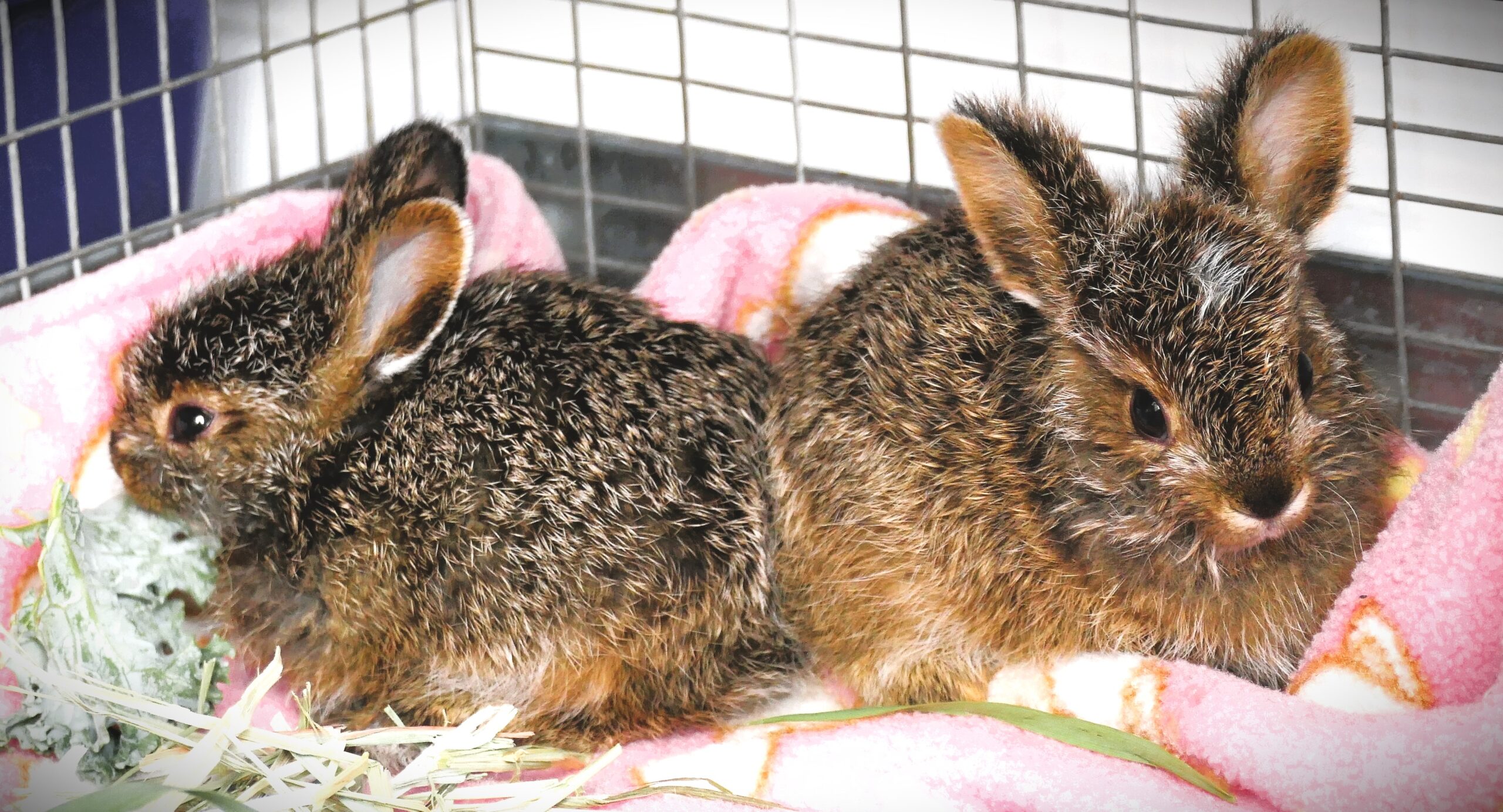
Some Additional Thoughts …
Be Gentle ...
Hares are very easily stressed, more so than most other wild animals. Therefore always be very quiet and gentle when working with them. Also, care for them in a dark, quiet room. It is important that you handle leverets as little as possible. If you handle them too much this can cause them to go into shock and die. Never hold a rabbit only by its hind legs. If the baby tries to jump while being held improperly he could break his legs or back.
Be Careful ...
Do not critter-nap. If not injured, only abandoned leverets need our help. Please do not approach any healthy leveret unless you are sure he is orphaned, injured or sick. Healthy leverets have a much better survival rate if left in the care of their mother.
Be Informed ...
As tempting as it is to try to raise wild hares yourself, please remember they require very specialized care and food. Their mortality rates in captivity are very high. Additionally, feeding young ones is a very time-consuming task. Finally, in Ontario it is illegal to keep hares if you don’t have a Wildlife Custodian Authorization. This can be obtained from Ontario’s Ministry of Northern Development, Mines, Natural Resources and Forestry (NDMNRF).
If you have determined a leveret or litter needs help, please follow the leveret care suggestions given above. They outline what you need to know about caring for baby hares in the short term. Then please Contact Us to make drop-off arrangements.

